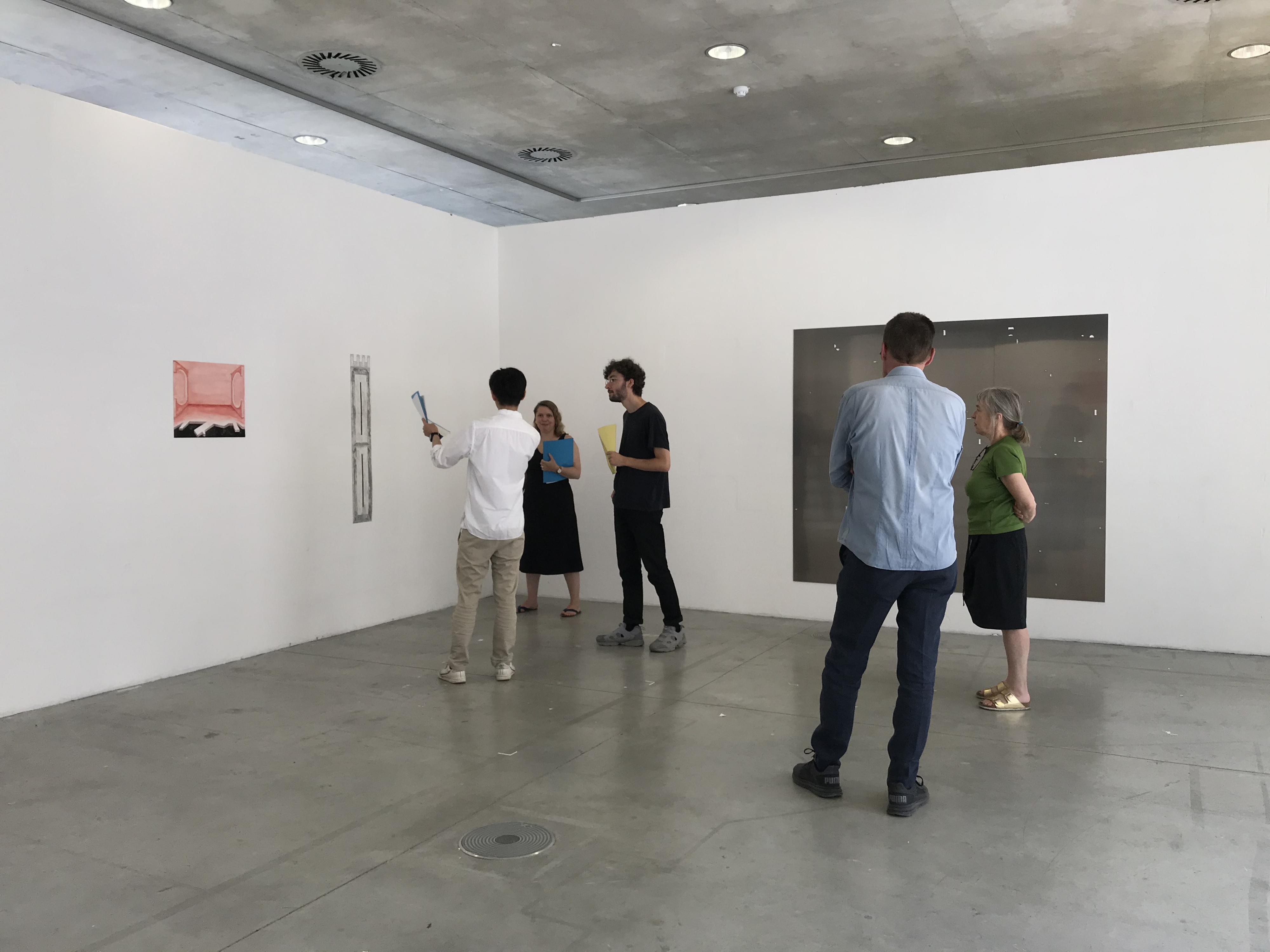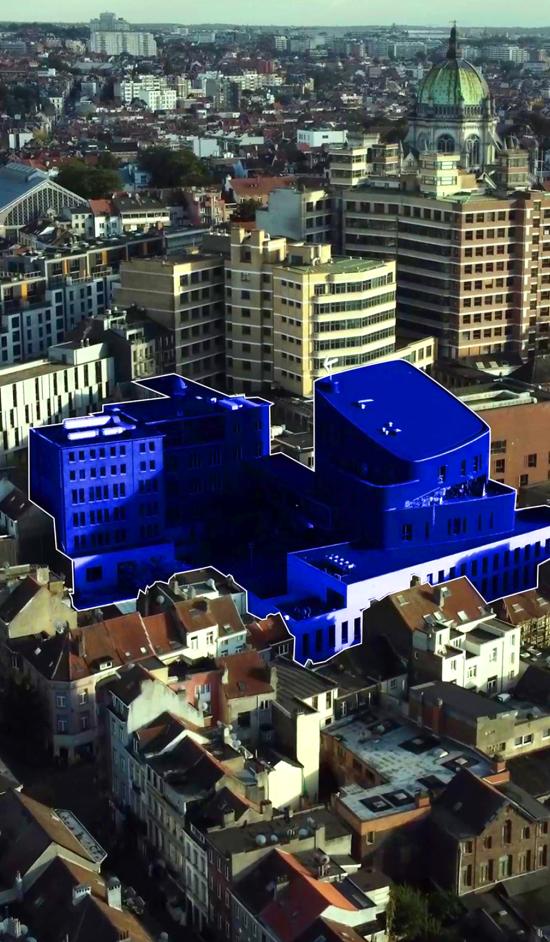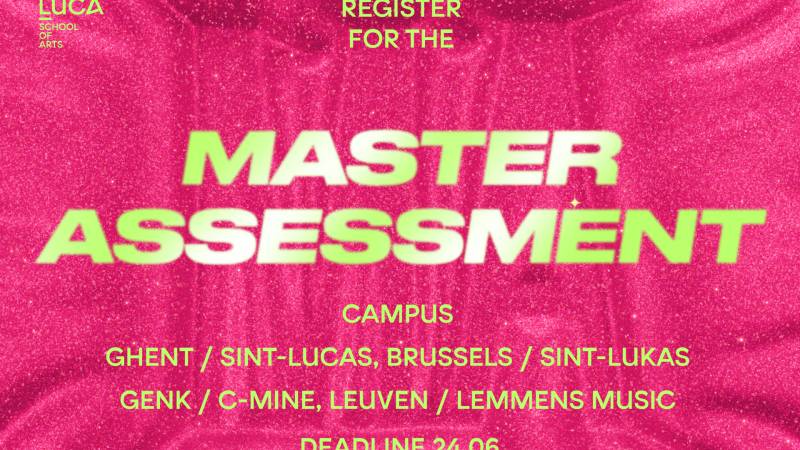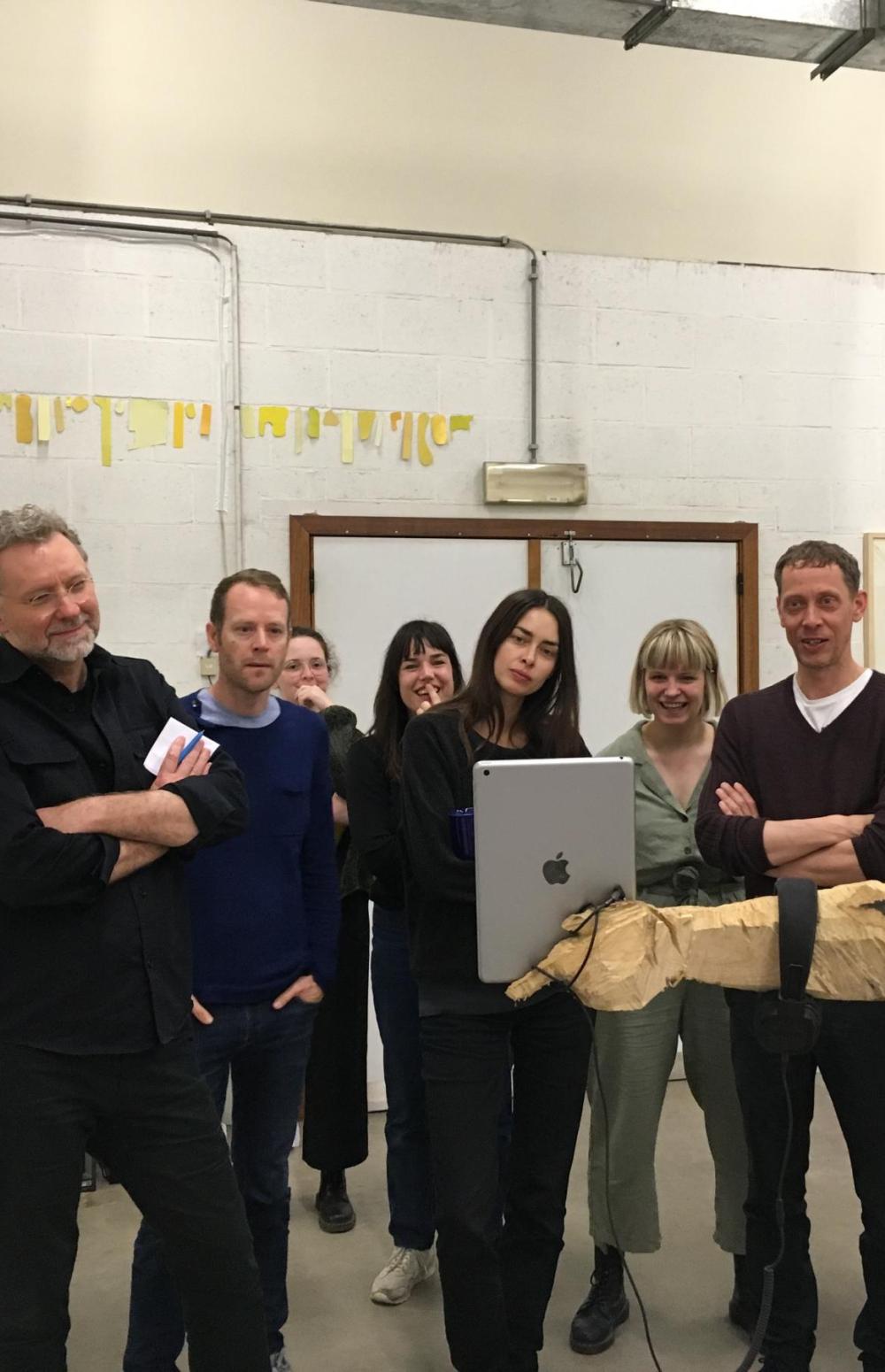
Campus Brussel / Sint-Lukas
Fine Arts in Brussels
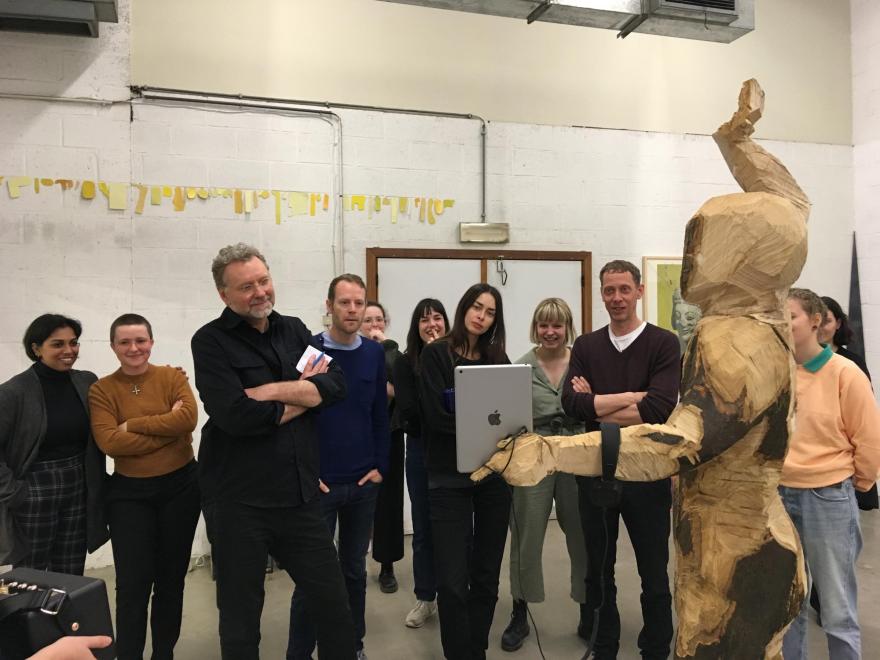
The individual development of an artistic position, based on a permanent process of critical reflection, is a crucial element in contemporary art. In order to become a ʻprofessionalʼ artist, students need to learn to position themselves critically. This is the core of the Fine Arts master program at LUCA School of Arts/campus Brussels.
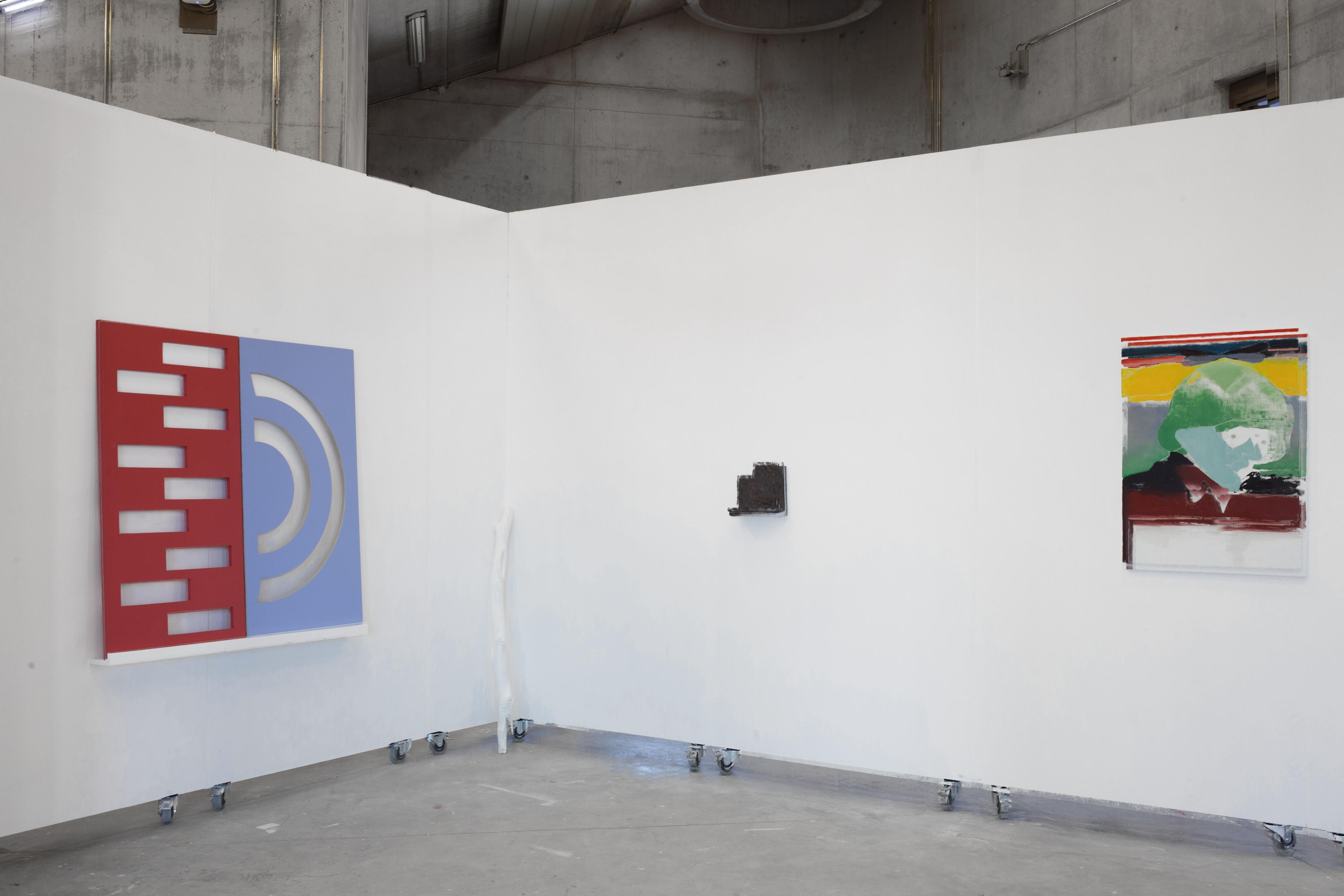
The Fine Arts Master program at Sint-Lukas Brussels represents a wide range of artistic possibilities. As a student you are free to develop your artistic ideas within the various disciplines of contemporary art: there are no restrictions in terms of medium or technique. All technical facilities on campus are at your disposal. The only imperative is the imperative of art. In practice this implies a focus on visual and conceptual finesse, productive self-questioning, and an imaginative approach to research. The student’s artistic intuition is not banned from the workfloor, but it may be critically dissected – out of respect rather than mistrust. The MFA group forms an international micro-community inside the school and, more broadly, inside the city; individual work is done in close contact with others. Student output will be framed and reframed by peers, directly and indirectly, using impulses generated in group discussions, theory seminars, guest lectures, workshops and excursions. The flourishing contemporary art scene in Brussels will act both as sounding board and medium of reception.
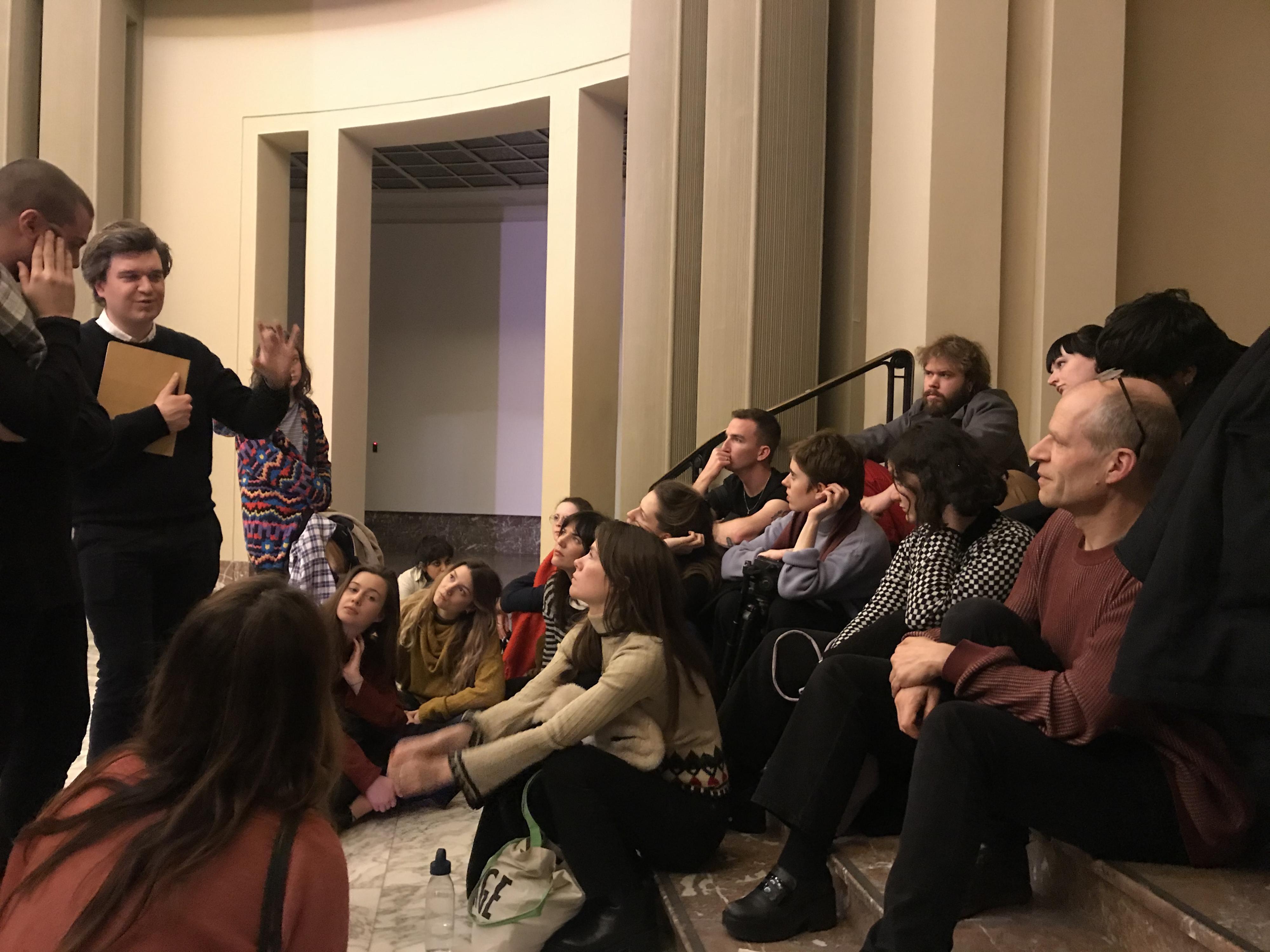
The master graduate project
The Fine Arts MA programme at LUCA is aimed at critical self-reflection. Throughout the year students develop their master project in the context of theoretical and practice-related input. Through regular group evaluations and presentations, the students develop their practice to a professional level and learn to express themselves verbally to their peers, tutors and finally to an external jury.
Each student works with an individual tutor and a thesis promoter, assigned to him/her at the beginning of the academic year. Students are expected to regularly consult them and to report about the progress of their work. The thesis is regarded as an integral part of the student’s MA project.

Seminars
Seminars are an integral part of the master's program. LUCA has a particularly rich and diversified range of research seminars fed by the research groups of our campuses from Brussels, Ghent, Genk and Leuven. Each campus has its own researchers, research traditions and disciplines.
Together with your coordinator, you will select two seminars that match your ambitions. You can also choose from the courses given at the KU Leuven or its associated university colleges.
Interested in this course?
Enrollment procedure
The application and enrollment procedure at LUCA School of Arts consists in general of three steps.
- First you will have to submit an online Admissions application in which you will be asked to upload certain documents required for the Admissions’ diploma and language check. We will be checking if you meet with the diploma and language requirements.
- The second step continues with your participation in a Master Assessment.
- Step three is the final and binding (online) registration (for which you will receive a unique registration link after succeeding the Master Assessment).
Do you want to start a Master's degree at LUCA?
Then you must pass the MASTER ASSESSMENT
Where do you have class?
Facilities & campus life
Campus Sint-Lukas Brussels
Paleizenstraat 70
1030 Brussels
+32 2 250 11 00
An international campus and an added value to your programme
- A modern and open campus in one of Europe's foremost artistic hubs
- Studio's and workshops, a state of the arts lending service, high tech print rooms …
- A creative community with four educational institutions and over a thousand artist and designers
- An art library renowned for its collection in the country
- At walking distance of the Brussels North railway station
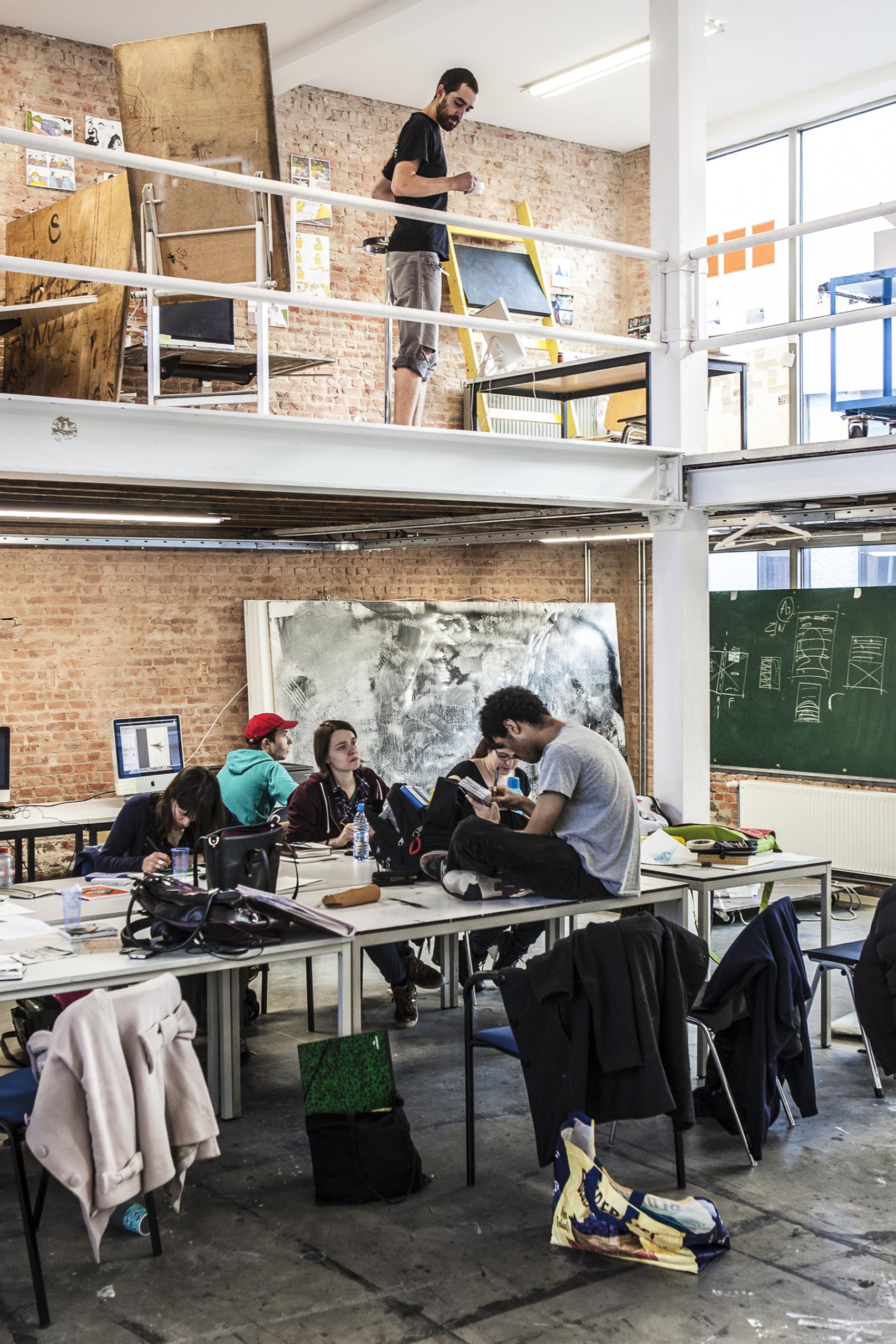
Our campus is situated within the dynamic context of the city of Brussels. The urban diversity creates new avenues of thought and leads to challenging artistic trajectories. Surrounded by a international mix of students with different cultural backgrounds you'll be confronted by other realities that may shift your boundaries.
High tech workshops
You can use all workshops and technical facilities, ranging from graphic techniques (such as screen printing and etching) to metal and woodworking and video and audio editing. You will receive support and tips from experts to practice techniques or realize your work.
- Printmaking: for etching, wood and linocuts and screen printing
- LUCAcontruct: processing metal and wood
- LUCAprint: perform multimedia work or work before printing
- LUCAlab: 3D printers, a laser cutter and a machine for cutting soft materials and engraving hard materials
Experiment room for master students
- Our master students can work independently on a separate floor on individual creations, do test setups and give group presentations.
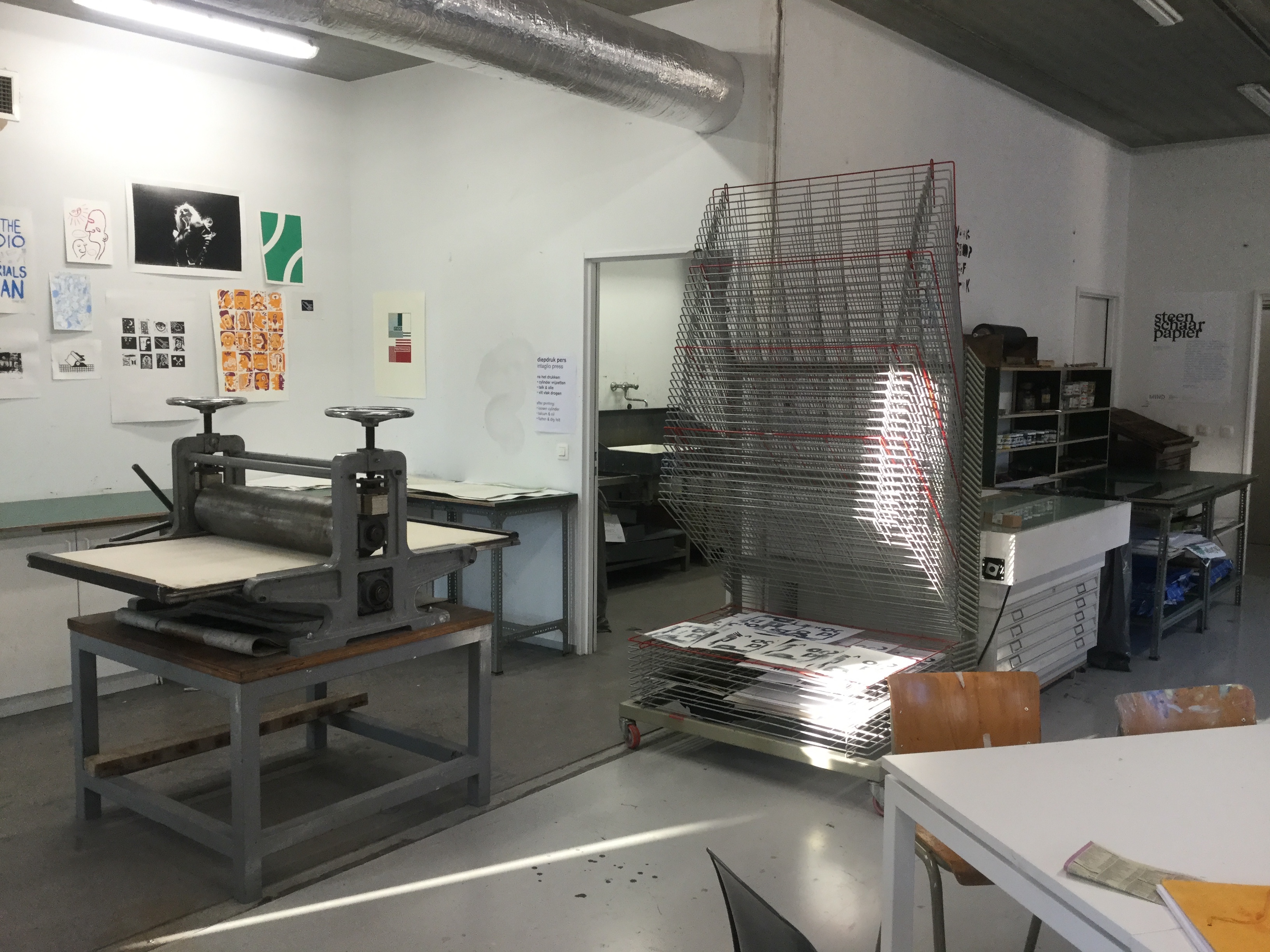
Contact
Heb je nog vragen? Contacteer ons vrijblijvend op bk.brussel@luca-arts.be
Paleizenstraat 70 / 1030 Brussels / +32 2 250 11 00 / facebook / Instagram
At LUCA we attach great importance to the quality of our courses
If the basic principle of the policy plan means that 'quality is our driving force', and that every aspect of the policy can be tested against this, then LUCA undeniably wants to develop and nurture a strong quality culture: a culture that leaves based on trust in people with talent and expertise, and which is aimed at valuing, inspiring and improving.
The formal quality framework for training within LUCA was named KOPERA, which stands for: Critically Analyzing the Quality of Training with Peers in Own Direction.
For KOPERA, LUCA starts from a vision of quality care that is based on trust and aimed at valuing, inspiring and improving.
During the six-year KOPERA cycle, each training course receives a panel of critical friends who examine the implementation of the quality characteristics and examine how the training contributes to the general LUCA policy.
The final element of KOPERA is the ultimate assurance of training quality. The key question is: "Does the program have a good quality culture that follows the 'plan-do-check-act' circle?"
LUCA publishes a quality sheet for each course. You can find this on the Education Quality page.
Our former students work as visual artists, curators, teachers in art education or build a career in the cultural sector. Some of our alumni are internationally renowned as artists, such as Luc Tuymans and Hans Op de Beeck.
"After Sint-Lukas Brussel I went to the HISK and the Rijksacademie in Amsterdam. I met people from the international art sector there. After that initial period my international career as an artist started. Today I have a studio with several assistants and I am a guest lecturer at various academies and universities."
Hans Op De Beeck
Visit us
Are you curious about our approach to art education? During our open days, you will get all the information you need, visit the campus, talk to our teaching staff and students ... Still not convinced? Visit our graduation show! During this, on-campus two-day art festival you can experience first hand how good our students really are.
During your master programme, you will be guided by a diverse team of teachers with expertise in painting, graphics, sculpture, mixed media, video, film, photo and drawing. They are artists with an active practice in the international context of contemporary art. In addition to their teaching duties, your theory teachers are also active as a writer, researcher, curator, speaker.
The teaching team:
Richard Venlet
Camiel van Winkel
Aglaia Konrad
Michael Van den Abeele
Sara Deraedt
Dirk Pültau
Ans Mertens
Monika Stricker
+ guests
